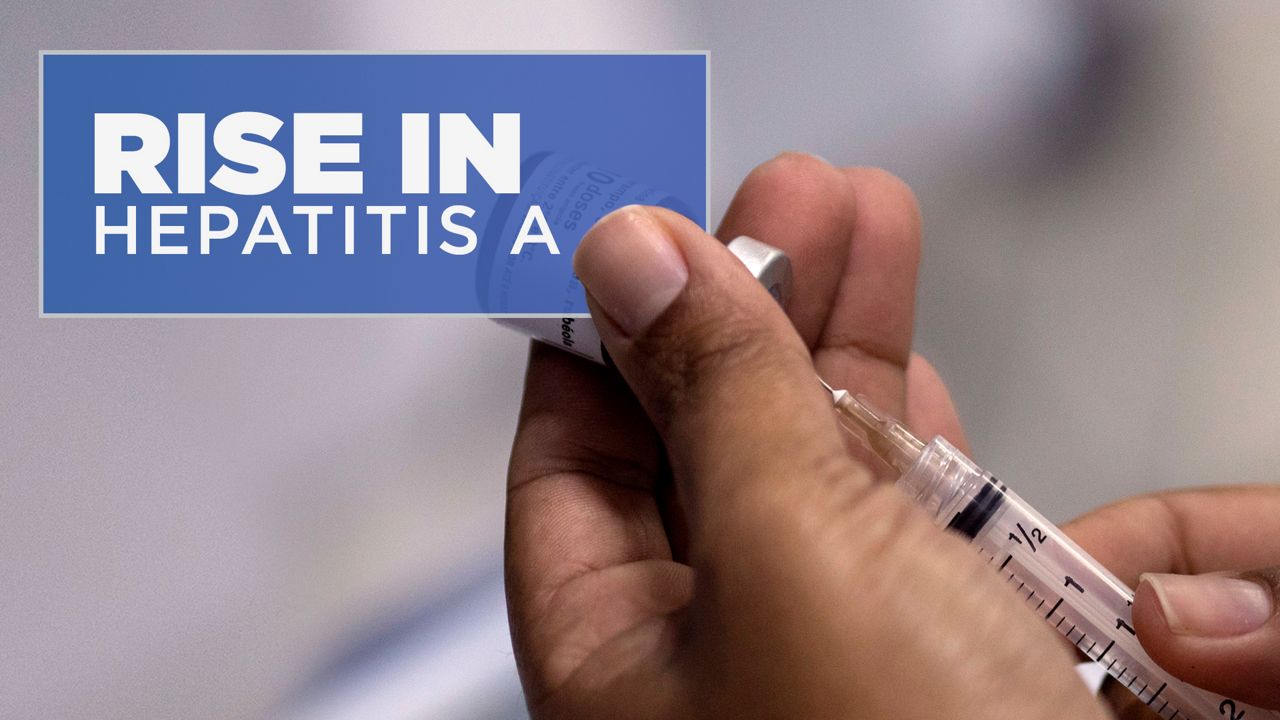ORLANDO, Fla. — State officials on Thursday declared a public health emergency over the hepatitis A outbreak, which has been concentrated in the Tampa Bay and Orlando areas.
- Public health emergency declared over hepatitis A outbreak
- Florida counties affected include many in Tampa Bay, Orlando areas
- INTERACTIVE: ▼ Here's a look at the numbers ▼
- READ IT: State surgeon general's official declaration of public health emergency (PDF)
- PREVIOUSLY:
The emergency "builds upon" the hepatitis A public health advisory that the state issued in November 2018, the Florida Department of Health said.
The state has also launched a dedicated web page to answer your questions and provide reported numbers about the illness: FloridaHealth.gov/hepa. You can also email the Health Department at HepA@flhealth.gov or call its information line: 1-844-CALL-DOH (1-844-225-5364), available Monday-Friday, 8 a.m.-5 p.m. ET.
"I am declaring this Public Health Emergency as a proactive step to appropriately alert the public to this serious illness and prevent further spread of Hepatitis A in our state," Florida Surgeon General Dr. Scott Rivkees said in a news release.
The public health emergency means the state will ask for help from the Centers for Disease Control and Prevention to address the outbreak.
Since January 1, 2018, there have been 2,582 reported cases of hepatitis A in the state. The counties with "critical" number of cases are: Brevard, Citrus, Glades, Hernando, Hillsborough, Lake, Liberty, Manatee, Marion, Martin, Okeechobee, Orange, Pasco, Pinellas, Sumter, Taylor, and Volusia.
Since last year, several cases of hepatitis A in food service workers have been reported. The state health department says that so far, there haven't been any reported transmissions to restaurant patrons.
The state surgeon general also says any bathroom or shower facility used by the public should be sanitized at least once a day with a bleach solution or other CDC-approved disinfectant. The bleach solution consists of 1 2/3 cups of chlorine bleach per gallon of water. The disinfectant solutions should be applied to all surfaces for a minimum of one minute, health officials say.
Hospitals, labs, and other health-care providers are also required to immediately report any case of hepatitis A to the local county health department.
Hepatitis A is a contagious virus that attacks the liver. Symptoms usually start within a month of exposure and can include jaundice (yellowing of skin and eyes), fever, diarrhea, fatigue, loss of appetite, nausea and vomiting, stomach pain, dark urine, or pale- or clay-colored stool. Hepatitis A is primarily spread through the fecal-oral route, via poor hygiene, sexually, or through ingesting contaminated food or water. Most people do recover but require hospitalization.








